WÜRTH stands for quality
Reinhold Würth took over the family business at the age of 19, shortly after WWII, and over 75 years has built a global enterprise with over 400 companies in 80 countries worldwide. Several Würth Group companies operate in the Czech Republic.
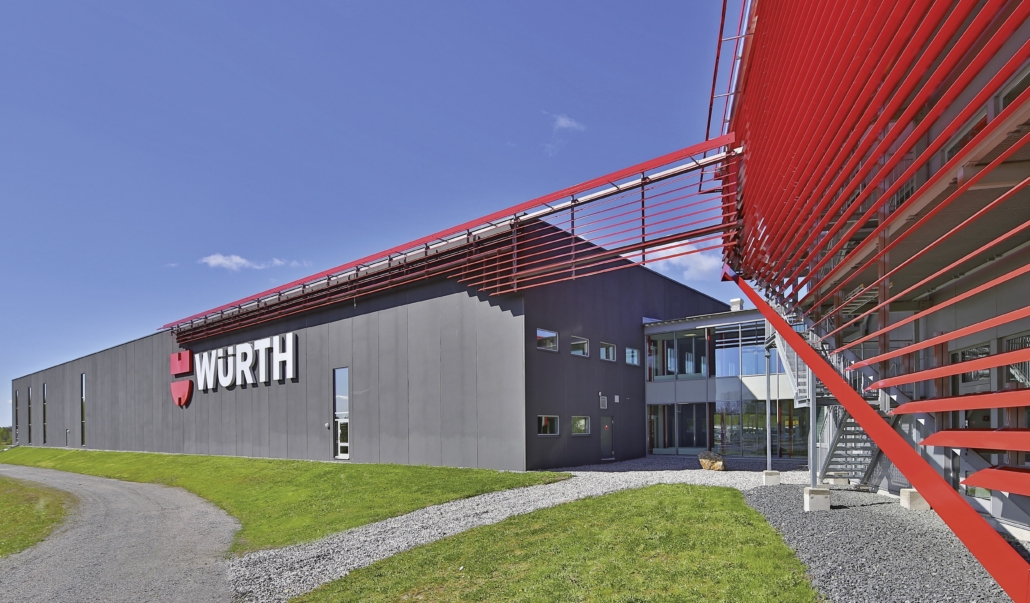 We talked about one of them, Würth Czech Republic, with David Mašek, its Managing Director and Executive Director for Finance and Operations.
We talked about one of them, Würth Czech Republic, with David Mašek, its Managing Director and Executive Director for Finance and Operations.
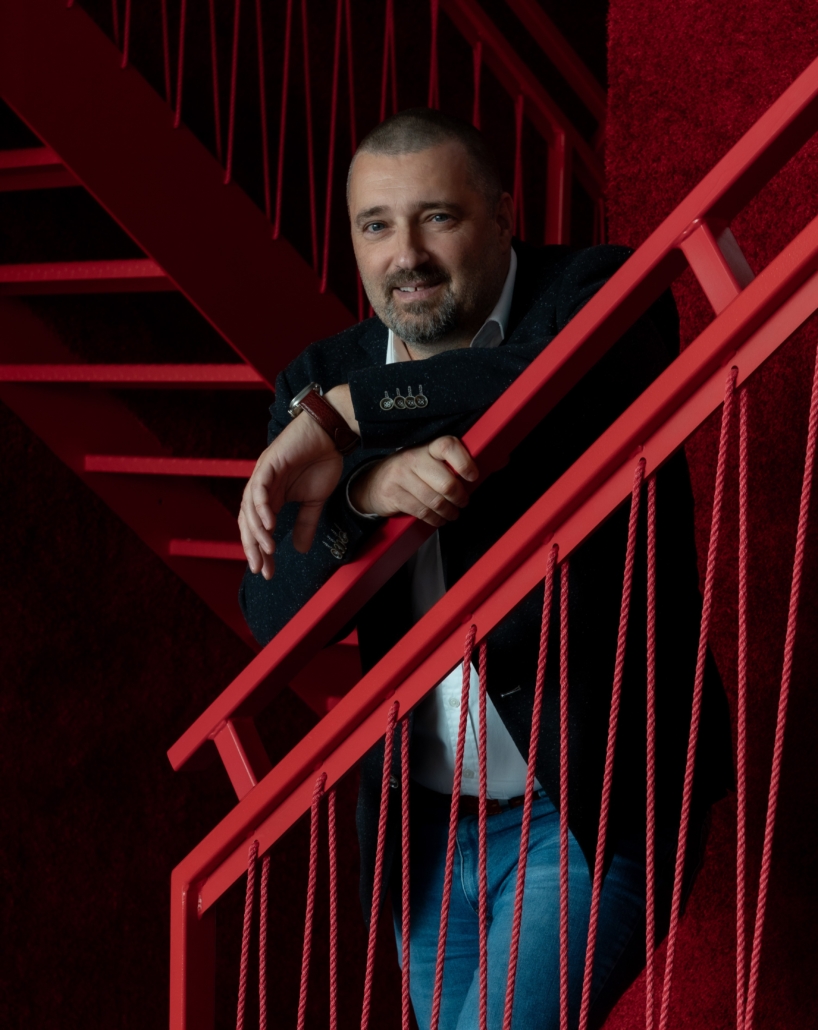 Could you take us back to the early days of Würth?
Could you take us back to the early days of Würth?
Würth was founded shortly after World War II by Adolf Würth, father of the current owner. On 1st October of this year, it marked 75 years since Reinhold Würth joined the ‘family business’ at the age of 14 as the second employee. He recalls his father handing him a backpack filled with nails and screws, telling him to go on his bike and start selling in neighbouring villages. Reinhold took over the business following his father’s death, at just 19. Next spring, Professor Würth turns 90, and even today, when you meet him, he is incredibly active. Currently, the company reports an annual turnover of over EUR 20 billion – a testament to tremendous hard work!
People often talk about the Würth culture. What exactly does that mean?
Würth culture is an intrinsic part of the company’s DNA and is incredibly embedded across the entire Group. I can say this with confidence, having spent 17 years in the corporate world, working for a highly successful publicly traded American company before moving to this family-owned business. This isn’t to say Würth isn’t performance-driven, but the atmosphere here and the approach to handling some situations feel very different. The company has a certain tolerance for setbacks, as long as they see you’ve genuinely tried your best. It’s something you have to experience to fully understand. As a former CFO, I find these softer aspects a bit harder to articulate.
How did the company get from Germany to the international market?
In the 1960s and 70s, Würth began expanding into Switzerland and Austria, followed by moves eastwards over 30 years ago (Slovakia in 1991, the Czech Republic and Poland in 1992). Today, this family-owned business operates branches or independent companies in 80 countries worldwide. Over the past decade, Würth has doubled its revenue, with a target of reaching EUR 20 billion set for 2022. While we narrowly missed this goal in 2022, we managed to achieve it last year. This can be attributed to a combination of several factors. Traditional face-to-face selling, with a rep coming in, offering the goods and establishing a partnership, and alongside that a modern approach to business. We have shops, an online shop and an app of course, as well as vending machines – we try to get the customer to any contact point we have. The third key to success is quality. Würth stands for quality. While we may never be the cheapest option on the market, our goal is clear: to be the highest quality provider.
What is your strategy for staying close to the customer?
Customers receive not only products but also comprehensive services and advice that few competitors can match. We take an individual approach to every customer and aim to fully adapt to their specific needs. Among the most innovative systems we offer is BAULOC – a mobile shop that can be placed directly at construction sites to provide materials and tools without wasting time. Another interesting system is our vending machines, filled with consumables or personal protective equipment. Employees can easily pick up what they need using their ID, while our team can monitor stock levels and replenish as necessary. This not only saves customers time and money on staff but also gives them perfect control over material usage. Another solution we offer is the ORSY (from the German ORdnung SYstem) racks, a storage system filled with our product range. These systems are an added value that customers appreciate because they save time and costs while offering complete overview. Today’s managers are especially interested in these time-saving and cost-efficient solutions. Moreover, all our systems are compatible with one another and can be interconnected seamlessly.
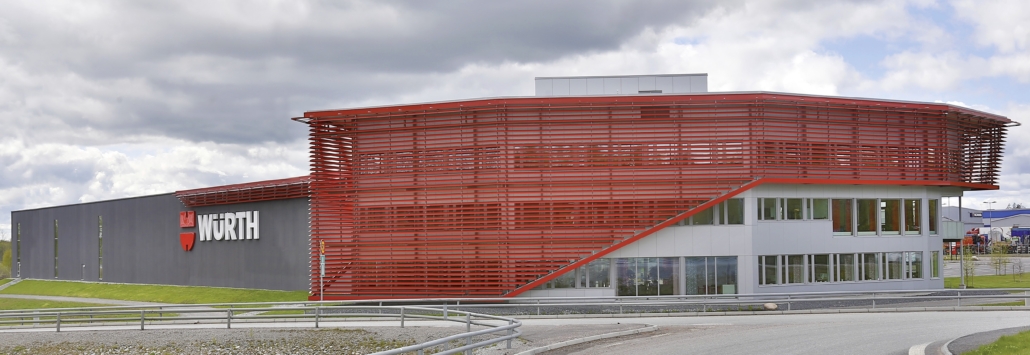 Could you describe your typical customer?
Could you describe your typical customer?
We currently have over 42,000 active customers, ranging from small tradespeople like locksmiths or carpenters working from a garage to large companies like Škoda Auto or ČEZ. Our customer base is incredibly diverse. Naturally, we approach our customers based on their size, importance and specific needs. Small customers are primarily directed to our shops and e-shop or assisted by our Telesales call centre. Those with a slightly larger scale are assigned their own sales representative. Some customers require a visit from their rep every two days, while others only need one once a month. We also serve large operations, where our team replenishes vending machines almost in real-time. The type of service depends on the nature of the collaboration. So, it’s hard to define a ‘typical’ customer – it can be almost anyone.
What’s the share of the construction industry?
Relatively large. Our Construction division focuses on customers in the construction sector. We offer an incredibly wide range of products, including fasteners, cordless power tools, hand tools, construction chemicals, anchoring systems and workwear… It’s an extensive selection. Additionally, we have a specialized division called CSPM (Construction Site Project Management), which takes care of customers right from the project stage, helping to design the optimal solution for the entire construction. In Moravia, we have a great team working on motorway projects, providing excellent anchoring technology for things like guardrails and bridge railings. We strive to deliver complete solutions for our customers, including specialists who can assist with the construction process. We also offer a broad range of solutions for modern timber buildings, from screws to films and sound insulation. Customers who are not only price-conscious but also prioritize quality always return to us.
 Would you describe Würth as more of a partner than a supplier?
Would you describe Würth as more of a partner than a supplier?
I would say our goal is to be the customer’s best buddy – the number one friend. We want our customers to see us as a partner that supports them in their business, a partner they can always turn to with confidence. That’s why we strive to bring new solutions to customers, such as vending machines or other systems. The sales representative always looks for solutions that could help the customer. Yes, of course, we want to sell our products to them, but they get something extra with it. We aim to build long-term partnerships intentionally. This is the core of our business. A personal approach is very important.
Every customer who comes to you surely notices company’s emphasis on architecture.
Professor Würth is known for his passion for art. Architecture, too, is an art form. That’s why we’ve created this amazing building here in Nepřevázka. It’s not a typical office building; it’s a work of art. It’s a beautiful house, but it’s also very demanding to maintain. There isn’t a single right angle, and there are large glass panels and extensive premises. Almost all Würth buildings are created as unique architectural pieces, and Professor Würth personally approves them. It’s about making an impact, being exclusive… Although it’s a 20-year-old building, it’s still something amazing and unique that sets us apart.
What were your early days at Würth like?
I joined as CFO in 2021, and over time I moved up to the Director’s position. Before that, I worked for 17 years for a company that’s the world leader in supplying joint replacements. The two companies share one thing: top-tier quality. I lived in Switzerland for several years, so for me, Würth and its logo truly mean a lot.
Würth is a family business. How does it operate externally?
In short: Professor Würth has two daughters, with Bettina serving as Chairwoman of the Board. The entire family is involved in the company’s operations. Professor Würth has announced that from 1st January next year, he will hand over executive positions to his grandsons, Benjamin and Sebastian. Reinhold Würth has sent a nice letter to all employees, informing them about the new structure: Benjamin will take over from him, and his brother Sebastian will take over from Bettina, who is his aunt. In the letter, Mr Würth assured everyone that the family business would continue and would not be sold off to investors and shareholders. The family tradition and history are crucial for both employees and customers.
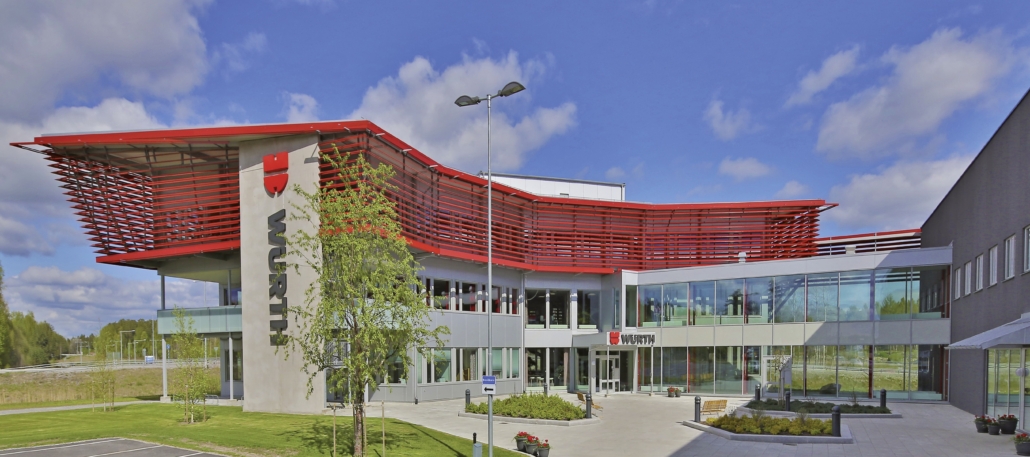 You’ve mentioned that Reinhold Würth has a strong passion for art.
You’ve mentioned that Reinhold Würth has a strong passion for art.
It’s estimated that he owns around 20,000 works of art, mainly paintings, sculptures and statues. He lends these works to galleries and exhibitions, and he also built museums and galleries at the company’s headquarters in Künzelsau, in the Hohenlohe region. He enjoys purchasing artwork and is proud to share it. The galleries are open to the public for free, as he wants to make art accessible. The headquarters corridors display originals from artists like Friedensreich Hundertwasser, while the gallery features work by Kupka and Picasso. The Würth family is also a significant supporter of UNICEF, having donated EUR 1 million to help Ukrainian refugees after the war began. I think most of their charitable activities are not publicized, as the family prefers to act without seeking media attention. Additionally, as part of the aforementioned changes in the company, Professor Würth’s granddaughter Maria will take over leadership of the companies managing the art collections on 1st January 2025.
What are the future plans with such major changes in the company?
The changes in leadership will not directly affect us, as the company’s strategy and direction have been set. Personally, I believe that, although Professor Würth is stepping back, he will still keep an eye on the business. For us, 2025 is a pivotal year, as we want to show the family and the Group that we can grow too. Würth in the Czech Republic is currently undergoing transformation; two years ago, Professor Würth decided to separate the significant Industry division, which was the first big step towards transforming Czech Würth. We’ve also made organizational changes across the entire company structure. The company is undergoing a transition, and next year is crucial for us: stabilization and growth. We can’t say that our company is unsuccessful – over CZK 1.5 billion in annual revenue is not an unsuccessful business in the Czech Republic. But we have not yet fully met the growth ambitions of both the family and ourselves locally. For us, next year is key; it should be the first year of stabilization following all the transformations and changes, and we expect this to show in the results.
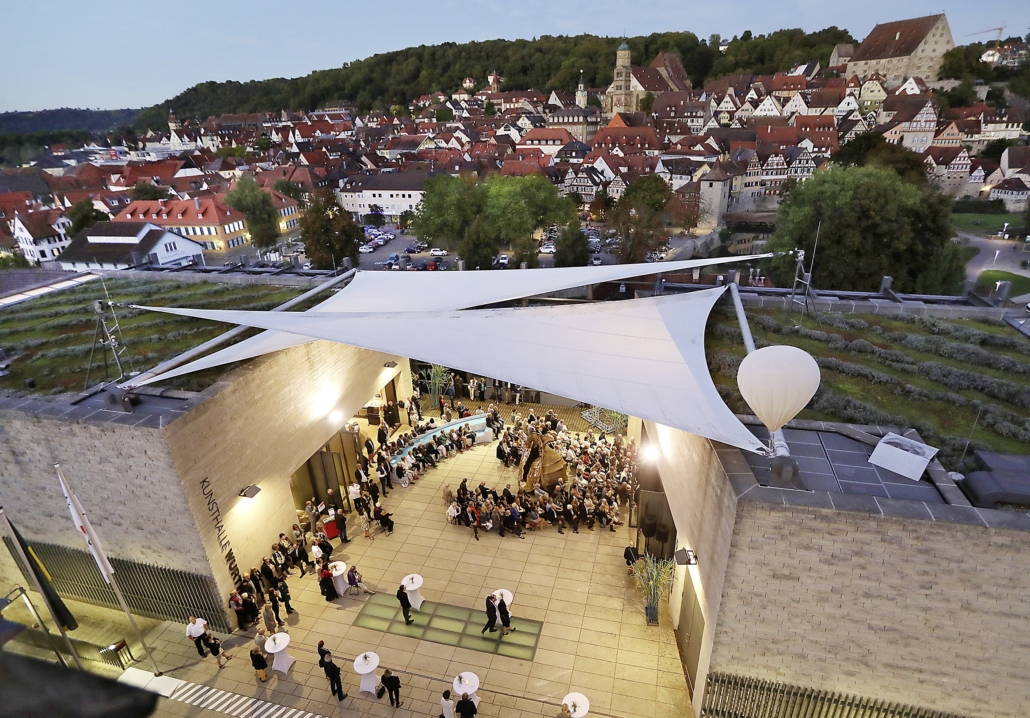
So, you’re facing a number of challenges…
At the moment, the market isn’t particularly favourable for us. Construction represents about a quarter of our turnover, and we see a major obstacle in the dysfunctional digital building permit process. It’s not just the technology that’s failing; I sense impatience and nervousness within the construction market itself. This is also evident among our customers in the Automotive division, where there’s a lot of uncertainty due to planned factory closures by VW Group in Germany. This only adds to the market’s nervousness. That being said, we are full of expectations because economists’ forecasts predict growth in the first quarter of next year. Of course, other challenges, like this year’s floods, could come up. The general mood in the construction or automotive sectors isn’t entirely in our favour. But even so, we are doing well in the market, winning new business partners, bringing further innovations and improvements … To sum it all up, yes, next year is one big challenge. But with the Würth brand, its high-quality products, our tradition and culture, our best efforts to be partners to our customers and a team of great people across the company behind us, I believe that in the future we will only look back on 2025 as a successful year.
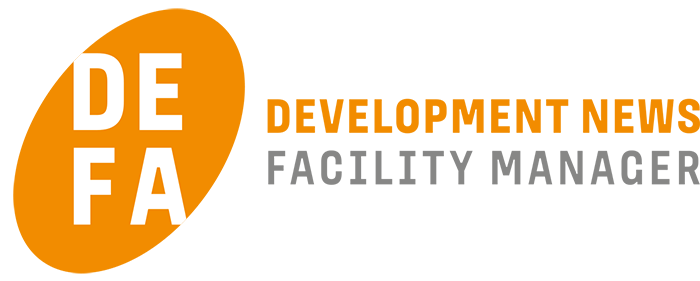
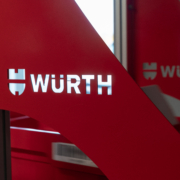


Leave a Reply
Want to join the discussion?Feel free to contribute!